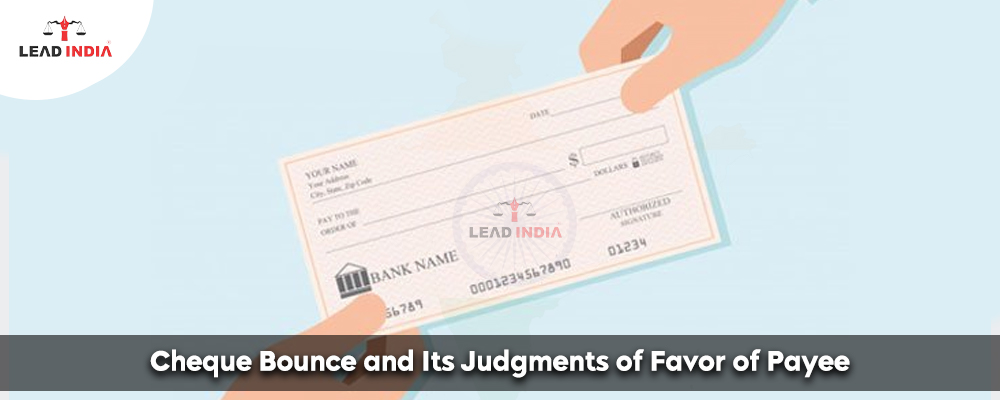Since checks work as a medium of exchange that promotes cashless transactions, people find it more convenient to carry checks rather than cash. People favor cheques because they reduce risk when making large or expensive transactions.
An unmarked bill of exchange issued on a particular banker that is due only upon demand is called a cheque. It also includes an electronic picture of a truncated cheque and a cheque in electronic form. These definitions are included in Section 6 of the Negotiable Instrument Act. The three parties involved in a cheque are the payer, the drawee, and the drawer. The person who writes the cheque, referred to as the drawer, is followed by the bank, the payee, or the actual recipient of the funds whose name appears on the cheque.
What is Cheque Bounce?
When a bank pays the payee after receiving a cheque, that cheque is said to have been honored. A circumstance referred to as “cheque bounce” or “dishonor of cheque” occurs when the bank refuses to pay the payee. If a cheque bounces, the payee who was supposed to receive the money is not paid for a variety of reasons, including insufficient funds in the drawer’s account, the amount on the cheque being more than what is stated, the cheque being overwritten, certain items not mentioned, a signature on the cheque not matching, the drawer ordering the bank to halt payment, an amount written in words and figures not matching, an inconsistent name of the drawee, and so forth.
Need A Legal Advice
The internet is not a lawyer and neither are you. Talk to a real lawyer about your legal issue

Cheque Bounce Judgment in favor of the payee
HMT Watches Ltd. V. M.A. Abida &Anr – To release Abida (the respondent) from her obligation to pay the appellant HMT Watches, the appellant filed a criminal complaint against her. Abida has since issued 57 checks. When the checks were brought to the bank, they were refused, with an explanation that the check was “stopped by the drawer.” The appellant sent out a notice.
The respondent filed the criminal complaint because the appellant was the respondent’s redistribution stockist. Accepting the plea, the high court dismissed the criminal prosecution that had been brought against the appellant. The appellant contended before the High Court that the case should not have been quashed. According to the respondent, the requirements of the dishonor of the cheque were not met, and the checks were given as security. According to the court in this instance, the High Court erred in quashing the case, finding that the drawer’s payment stoppage was a contributing factor to the dishonor of the cheque. The Supreme Court ruled that the court could not dismiss the case because the cheque was provided as security.
Section 138 of the Negotiable Instruments Act, of 1881 stipulates that if a person issues a cheque from an account that lacks sufficient funds to cover the payment, or if the amount exceeds the agreed limit, and the cheque is returned unpaid by the bank, it constitutes an offense. The individual may face imprisonment for up to two years, a fine up to twice the amount of the bounced cheque, or both.
Certain conditions apply
The cheque must be presented to the bank within 3 months(According to Reserve Bank of India (RBI) guidelines, cheques are valid for a period of three months from the date of issue. These guidelines were implemented starting April 1, 2012.) of issuance or its validity period, whichever is earlier; the payee must notify the drawer in writing within thirty days of receiving notice from the bank about the dishonored cheque; and the drawer must fail to settle the payment within fifteen days of receiving the notification.
There are a lot of Cheque bounce cases that are pending before the court right now, but very few people are penalized for the crime. Some are discouraged from believing bank checks; this is primarily due to people’s fears. The current change, which was made in the years 2008, 2015, and 2018, also aims to decrease the number of phony Cheque bounce cases that were filed as well as the amount of time that Cheque bounce cases remained open. A cornerstone in issues about finance and the economy is this act.
Lead India provides free legal advice and online information among other legal services. We offer a platform where you can talk with a lawyer and ask legal questions. Lead India’s lawyers can help you with any legal matters. Lead India offers free online legal help in India. In addition to providing legal advice online, Lead India allows users to ask questions for free.





 Talk to a Lawyer
Talk to a Lawyer